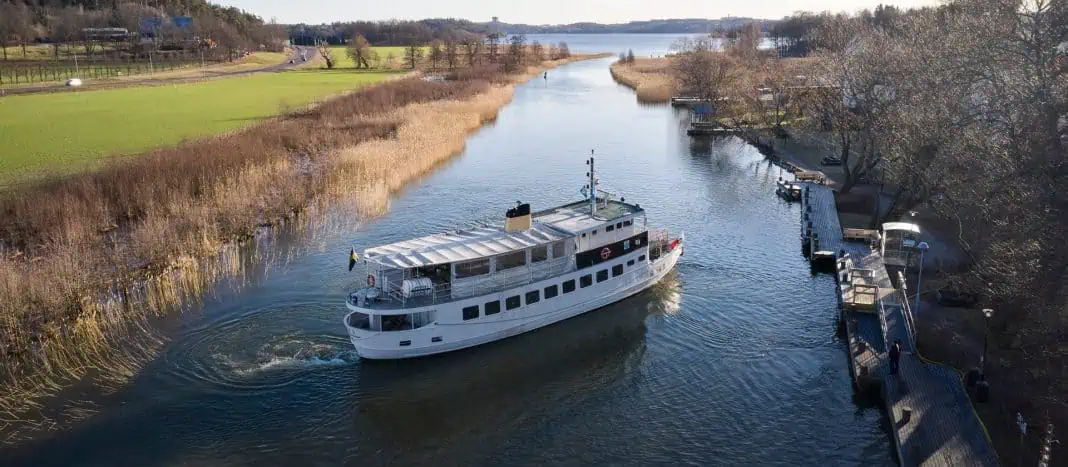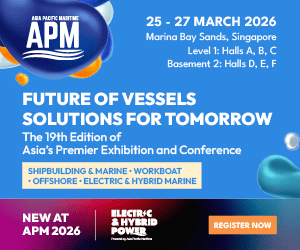Blidösundsbolaget upgrades its vessel, the M/S Rex with Scania’s newer hybrid engine following the successful refit of the boat for hybrid operations in 2020.
While efforts and progress in reducing carbon footprint are advancing in public road transportation, the maritime sector is also taking measures to reduce its environmental impacts.
In line with Blidösundsbolaget’s commitment to sustainability, the M/S Rex is upgraded with the newer Scania hybrid engine for operations in the fall of 2023. The hybrid electric boat with a capacity of 150 passengers, ferries commuters on behalf of Stockholm Region. She operates daily on a 75-minute route on Lake Mälaren, between Stockholm city centre and the island of Ekerö.
“We have learned a lot and feel confident in doing these retrofits. The reduction of emissions is not only direct but also indirect as we can use the vessels already produced with modern drivetrains. For the crew and passengers, it has less vibration and is quieter,” says Fredrik Liw, Technical Manager, Blidösundsbolaget.
The potential of hybrid electric boats
“Adapting ports and other critical transport infrastructure to the impacts of climate change is a matter of increasing urgency, especially for the most vulnerable countries.”* Therefore, as electric power systems gain focus, they open more opportunities for future development and improved charging infrastructure. With more charging points, boats with battery capacity like M/S Rex will be able to run on 2-hr fully charged electric mode more frequently given the accessibility to other charging stations without having to depend on and return to the homeport for recharging.
Scania´s hybrid electric power systems allow for the engine and e-machine respectively to be run together or as standalone power sources. The system enables improved powertrain performance with exceptional torque and response directly from idling, as well as minimising noise when needed. Lower fuel consumption reduces operational costs and emissions. The full integration of all system components works seamlessly together and is controlled with a common, Scania-developed management software system.
“The upgrade will reduce the number of mechanical components and therefore being more compact weighs less. And with the installation, the vessel will be quieter,” adds Fredrik.
Navigating sustainably
Electrification contributes to more sustainable maritime transportation, with lower carbon emissions and noise, thereby protecting the well-being of sensitive ecosystems and coastal areas.
Our hybrid electric solutions draw on Scania’s long-established experience, knowledge, and technology from electrifying on-road vehicles to delivering reliability and outstanding performance. Together with complete services facilitating builder design, installation, and maintenance, customers benefit from the convenience of readily available support, as we jointly drive the shift towards a sustainable transport system.
Source:
*UNCTAD – Review of Maritime Transport 2022 | UNCTAD













